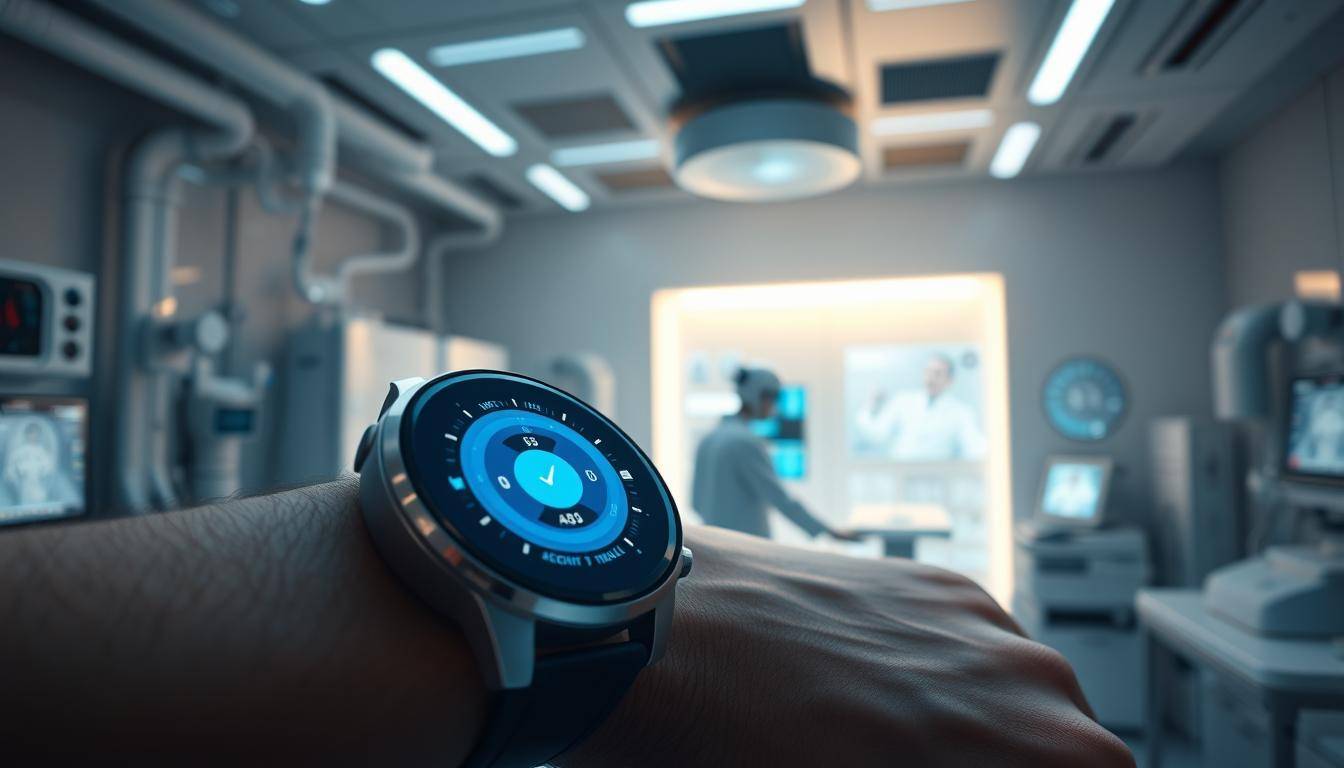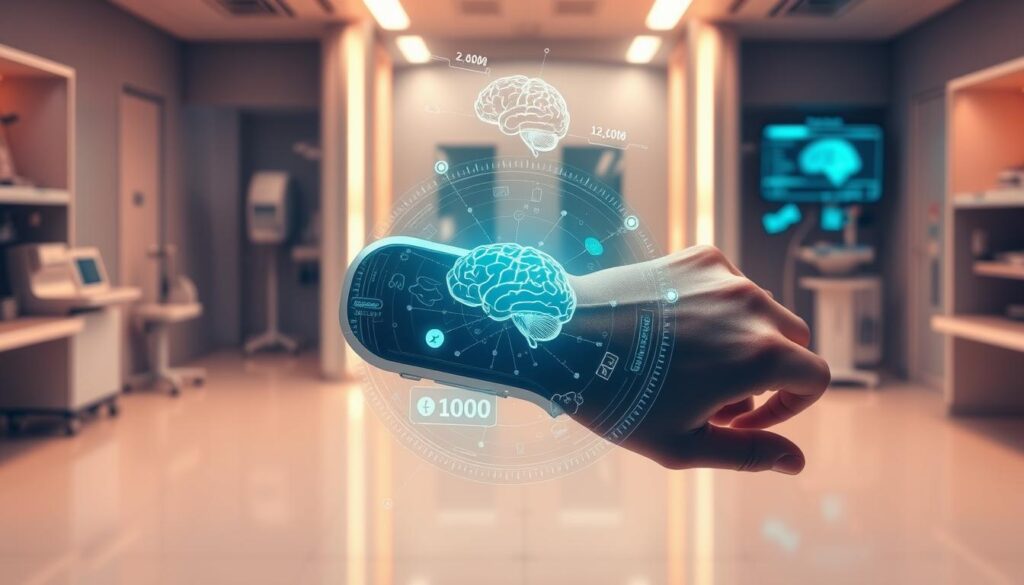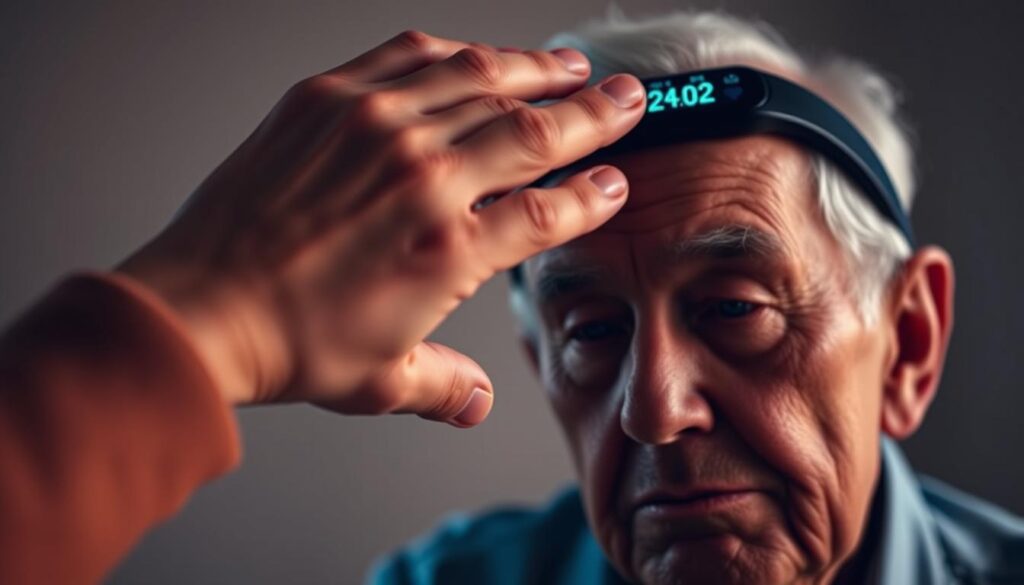- April 27, 2025
Welcome to Dementia World elderly home services



As the world’s population ages, more people are facing cognitive issues. Can artificial intelligence and wearable technology help detect cognitive changes before they become severe? Recent studies show AI-powered wearables might be the answer for cognitive impairment assessment.
Researchers have made machine learning models to predict Alzheimer’s disease in those with mild cognitive impairment. AI and wearable tech could help doctors spot early signs of dementia. This way, they can act early to help patients.
This article will look at how AI, wearable tech, and dementia screening come together. We’ll also talk about the future of keeping track of our cognitive health.
Wearable devices with AI are changing how we diagnose and care for dementia. They use smart tech to track health, giving insights into brain health.
AI wearables use smart sensors to gather health data. This data is key for memory loss evaluation and cognitive decline diagnosis. They track:
These wearables collect a wide range of data. This includes physical and behavioral metrics important for brain health evaluation.
AI wearables can watch health metrics all the time or just sometimes. Continuous monitoring gives data right away, helping with quick actions.
| Monitoring Type | Benefits | Limitations |
|---|---|---|
| Continuous | Real-time data, timely interventions | Battery life concerns, data overload |
| Intermittent | Battery life efficiency, focused data | Potential for missed critical data |
Machine learning is key in understanding the data from AI wearables. It spots signs of cognitive decline, helping with early neurocognitive assessment.

AI wearables are changing dementia care by linking with healthcare systems. They give doctors accurate, timely data. This helps with better cognitive function testing and care plans.
The use of AI in wearable tech is leading to early detection of Alzheimer’s. These devices track daily life, giving insights into brain health.
Wearable tech keeps tabs on how our brains work every day. It watches our physical activity, how we move, and more. These signs can show if dementia is starting.
Wearable devices spot small changes in behavior that might mean early dementia. They look at sleep and how we talk.
People with dementia often have trouble sleeping. Wearables track sleep, helping spot signs of brain decline.
Changes in how we speak can signal dementia early. Wearable tech checks speech patterns for these subtle signs.
Wearable tech beats old ways of checking for dementia. It watches us all the time, is easy to use, and finds problems sooner.
| Feature | Wearable Technology | Traditional Screening |
|---|---|---|
| Monitoring Type | Continuous | Intermittent |
| Detection Capability | Early detection of subtle changes | Detection at later stages |
| Invasiveness | Non-invasive | Often invasive or requires clinical visits |

AI and wearables are changing how we care for people with dementia. They use smart sensors and machine learning to spot dementia risk early. This helps doctors act fast to help patients.
Research shows AI wearables can track changes in how people think and act. They catch small signs of dementia that old tests miss. This makes them better than traditional ways of checking for dementia.
The future looks bright for AI and wearables in dementia care. They could make diagnosing and treating dementia better. This could greatly improve life for those at risk. More work is needed to make these tools even better for dementia care.